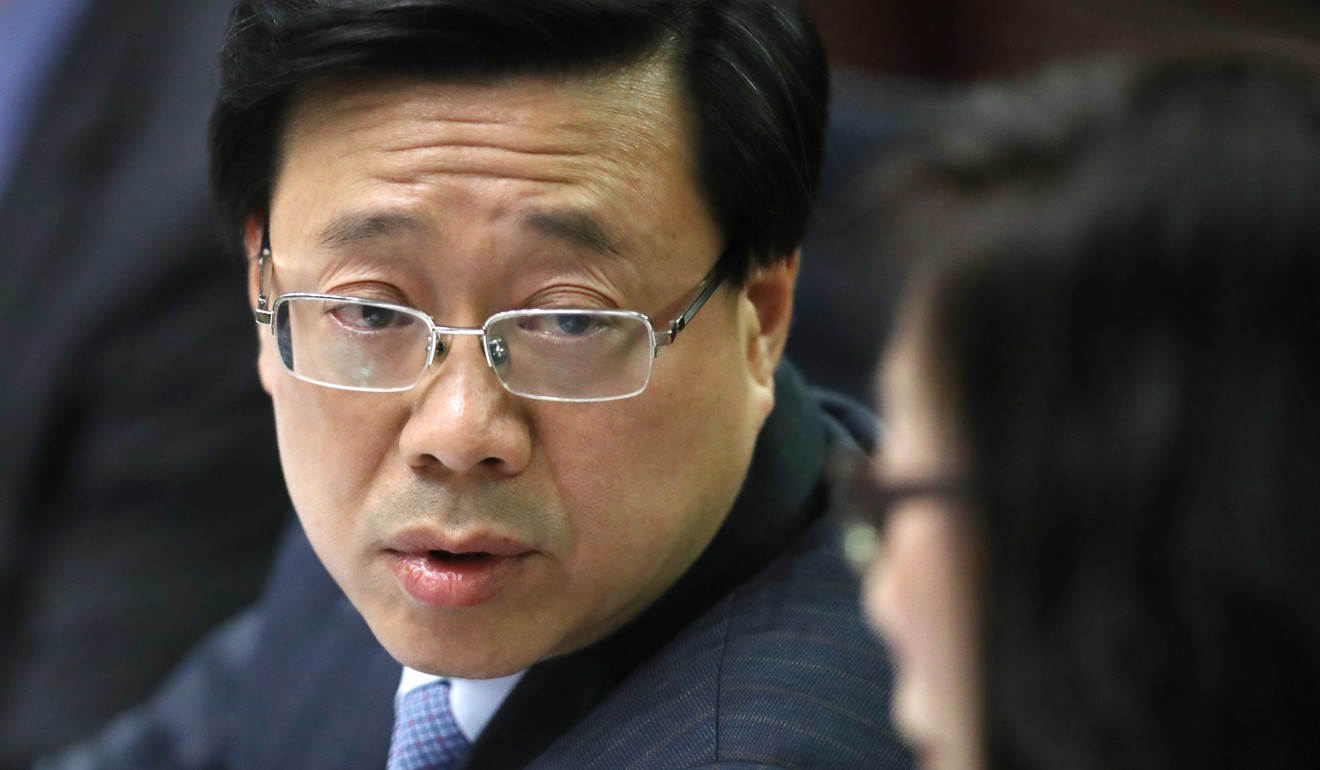
Hong Kong man who has spent 10 years in jail in mainland China over mortgage deal is warning sign over proposed extradition treaty, says lawmaker James To
- Democratic Party lawmaker James To was contacted by the businessman’s family for help
- To says case justifies opposition to proposal to change law over transfer of fugitives

A local businessman has spent a decade in jail across the border over a mortgage agreement he signed in Hong Kong with a mainland Chinese bank, it was revealed on Thursday.
Democratic Party lawmaker James To Kun-sun, who was contacted by the businessman’s family for help, urged Chief Executive Carrie Lam Cheng Yuet-ngor to look into the case, as it was a violation of the “one country, two systems” principle, under which the city was guaranteed a high degree of autonomy and independent judicial power after it was handed over from British rule in 1997.
To said the case should have been treated as a civil lawsuit in Hong Kong and not a criminal one on the mainland.
“It will seriously hinder international investors’ confidence,” he added. “If an act in Hong Kong can become criminal on the mainland, the city will become a dangerous place where no one is safe.”

The revelation came a day after Secretary for Security John Lee Ka-chiu hit out at growing opposition to a government proposal to allow the transfer of fugitives from the city to the mainland, Taiwan and other jurisdictions not covered by existing extradition agreements, saying two-thirds of 4,500 public submissions received so far supported the idea.
To said the case of jailed businessman Kwok Chun-sang justified opposition to the proposal from the business sector and others.
“Kwok was arrested and charged on the mainland when there is no extradition agreement in place. If such an agreement is implemented, Hong Kong residents and other people will be more worried about their safety,” he added.
But former Law Society president Ambrose Lam San-keung said Hong Kong businessmen should be careful when doing business on the mainland.
“Their company law is very different from ours, and the responsibility of mainland shareholders and company directors is much bigger … Hongkongers should seek legal advice and be careful of the risks,” Lam said.
According to a mainland court’s judgment obtained by To and copied to the media, Kwok was a director of a Hong Kong company, which held a mainland firm.
In 1996, Kwok signed a mortgage agreement with the Hong Kong branch of China Merchants Bank. Under the agreement, Kwok’s Hong Kong company obtained a loan of US$14.5 million with 25 per cent of the mainland firm’s equity pledged to the bank. But the local company failed to repay the loan.
Kwok was arrested in Shenzhen in 2007 while travelling there and prosecuted in 2009.
A court in Jilin province heard Kwok took 64 million yuan in share dividends from the mainland firm, but the money should have been given to the bank as the company failed to honour the 1996 agreement.
Kwok was sentenced to life imprisonment in 2009. His jail term was later reduced, and he was expected to be released in 2030.
To said Hong Kong resident should not be tried on the mainland in such circumstances.
“A lot of people borrow money in Hong Kong, and hire Hong Kong lawyers. If anything goes wrong, it should be dealt with in the Hong Kong courts,” he said.
To said he would urge Lam and the central government’s liaison office in Hong Kong to take the case to the top leadership in Beijing, as it could undermine the city’s image as an international arbitration centre under President Xi Jinping’s “Belt and Road Initiative”, a global trade strategy.